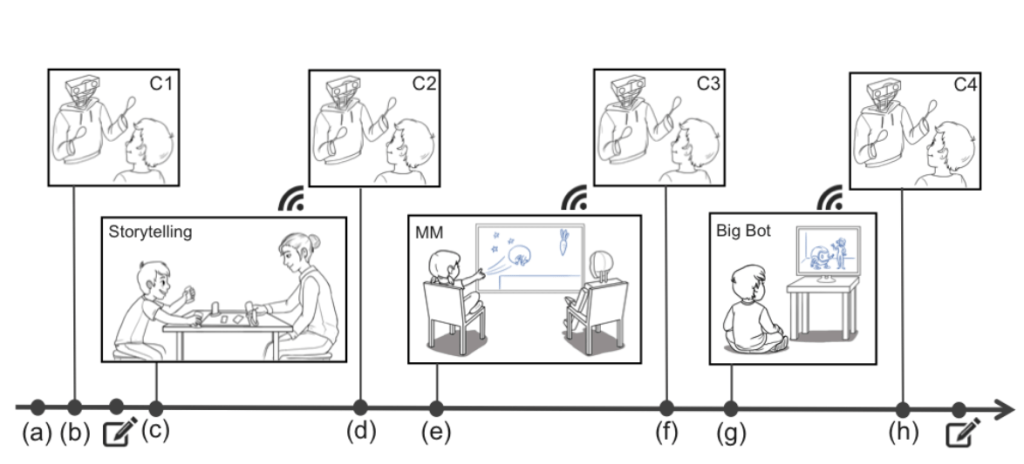
Sooner or later, our children will be raised by robots, so it’s natural that Disney, purveyor of both robots and child-related goods, would want to get ahead of that trend. A trio of studies from its Research division aim at understanding and improving how kids converse with and otherwise interact with robots and other reasonably smart machines.
The three studies were executed at once as a whole, with each part documented separately in papers posted today. The kids in the study (about 80 of them) proceeded through a series of short activities generally associated with storytelling and spoken interaction, their progress carefully recorded by the experimenters.
 First they were introduced (individually as they took part in the experiment, naturally) to a robot named Piper, which was controlled remotely (“wizarded”) by a puppeteer in another room, but had a set of recorded responses it drew from for different experimental conditions. The idea is that the robot should use what it knows to inform what it says and how it says it, but it’s not clear quite how that should work, especially with kids. As the researchers put it[1]:
First they were introduced (individually as they took part in the experiment, naturally) to a robot named Piper, which was controlled remotely (“wizarded”) by a puppeteer in another room, but had a set of recorded responses it drew from for different experimental conditions. The idea is that the robot should use what it knows to inform what it says and how it says it, but it’s not clear quite how that should work, especially with kids. As the researchers put it[1]:
As human-robot dialog faces the challenges of long-term interaction, understanding how to use prior conversation to foster a sense of relationship is key because whether robots remember what we’ve said, as well as how and when they expose that memory, will contribute to how we feel about them.
After saying hi, kids participated in a collaborative storytelling activity[2], which was its own experiment. The researchers describe the reasoning behind this activity thusly:
Despite recent progress, AI remains imperfect in recognizing children’s speech and understanding the semantics of natural language. Imperfect speech recognition and...